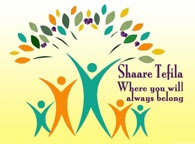I just arrived in Jerusalem for my week-long sabbatical study at the Shalom Hartman Institute and for my annual Rabbinical Assembly convention. Fortunately one follows the other so I am privileged to spend just over two weeks in Jerusalem. Israel has been a part of my being since I came here the first time with my family when I was 6. Since then I've studied about Israel, I've lived here, I've studied here, and I have visited many times. I miss it terribly when I'm gone for more than a year and I try to find ways to get back. To me Israel isn't another place we read about in the paper; Israel is a second home. I anticipate walking the streets of Jerusalem, hearing Hebrew everywhere, reliving 3,000 years of history. I know it's naive, but I always connect to that idealistic picture of our homeland.
But then something happens on my visit to wake me from my reverie. This time it happened while I was in the shuttle from the airport to my hotel. The driver took a route that I had never taken before - the new road to Modi'in (which then leads to a more northern entrance to the city). Part of the road enters the West Bank and you can tell because the security fence/wall is there on either side of the highway. In some places the wall looks like sound barriers we're used to seeing on the Beltway so it isn't readily obvious that Palestinian villages are on the other side.
The graffiti though makes it apparent. Two sentences stick out which point to the great debate in Israel. One said "Kahane was right". That is a reference to the late Rabbi Meir Kahane who led an organization called "KACH" which advocated, among other things, the expulsion of Arabs from the biblical land of Israel. This graffiti writer meant that had Israel followed Kahane's view there wouldn't have been several intifadas and years of terrorist activities.
But just a couple of miles down the road there was another graffiti which read, "there are also human beings on the other side". This other extreme expressed the belief that Palestinian Arabs are people too and they need to be treated fairly and justly.
So much for wanting to live in my shell, study with my rabbi friends, and just breathe in the spiritual air. It's impossible to do just that here. One becomes part of the political reality and you hope that not too many feathers are ruffled before it's time to leave.
More in the days ahead.
But then something happens on my visit to wake me from my reverie. This time it happened while I was in the shuttle from the airport to my hotel. The driver took a route that I had never taken before - the new road to Modi'in (which then leads to a more northern entrance to the city). Part of the road enters the West Bank and you can tell because the security fence/wall is there on either side of the highway. In some places the wall looks like sound barriers we're used to seeing on the Beltway so it isn't readily obvious that Palestinian villages are on the other side.
The graffiti though makes it apparent. Two sentences stick out which point to the great debate in Israel. One said "Kahane was right". That is a reference to the late Rabbi Meir Kahane who led an organization called "KACH" which advocated, among other things, the expulsion of Arabs from the biblical land of Israel. This graffiti writer meant that had Israel followed Kahane's view there wouldn't have been several intifadas and years of terrorist activities.
But just a couple of miles down the road there was another graffiti which read, "there are also human beings on the other side". This other extreme expressed the belief that Palestinian Arabs are people too and they need to be treated fairly and justly.
So much for wanting to live in my shell, study with my rabbi friends, and just breathe in the spiritual air. It's impossible to do just that here. One becomes part of the political reality and you hope that not too many feathers are ruffled before it's time to leave.
More in the days ahead.

Comments
Post a Comment